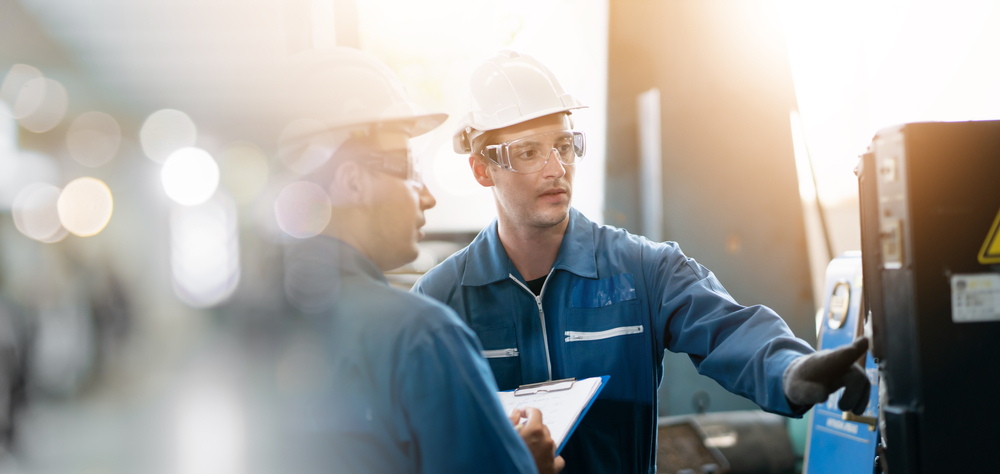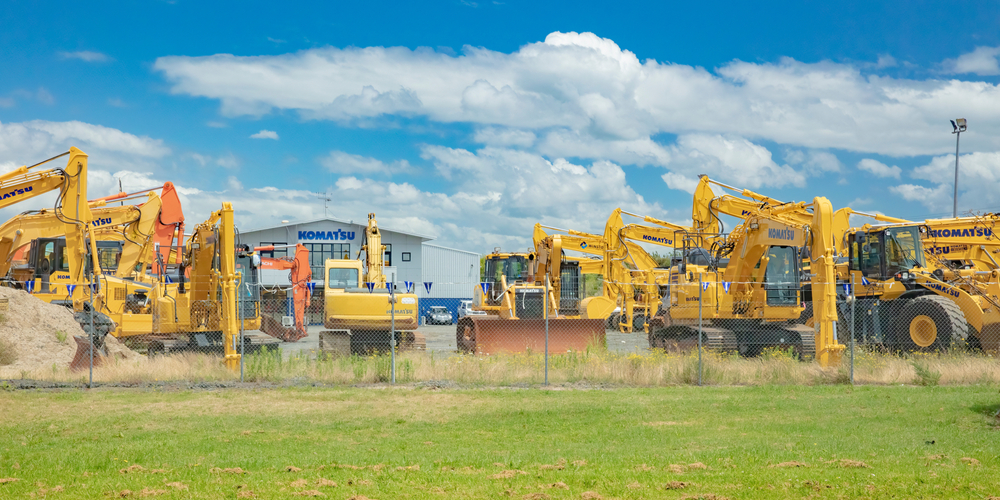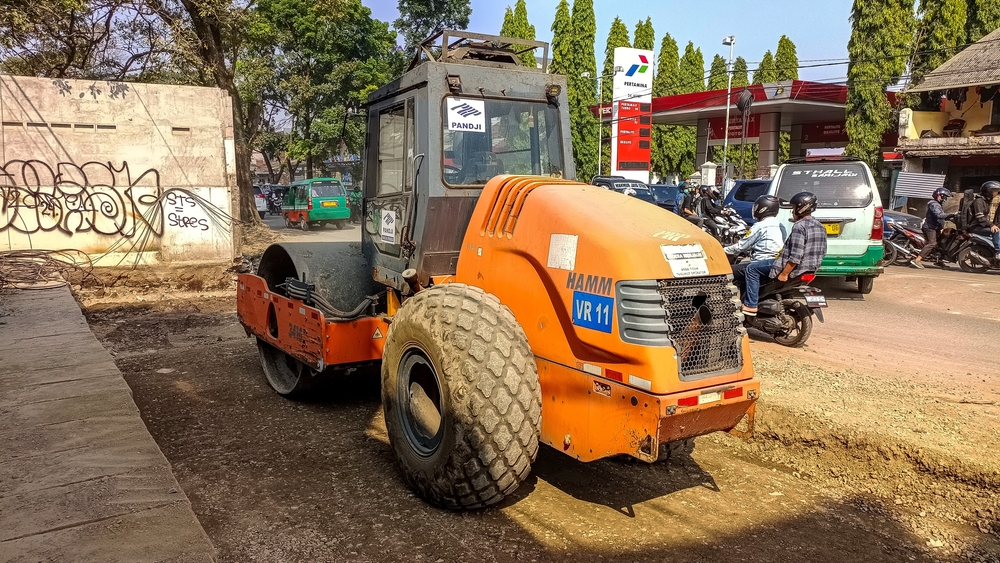The construction industry thrives on efficiency, safety, and reliability, where the performance of machinery is necessary for project success. Central to this performance are the reliable machine parts that form the backbone of heavy-duty construction equipment.
The right choice of parts is not merely a matter of keeping machines operational; it’s about ensuring safety, maximizing productivity, and reducing the costly downtime that can derail projects. From towering cranes to robust excavators, every piece of equipment hinges on the quality and reliability of its parts to meet the demanding challenges of construction sites.
Our focus here, irrespective of whether you are part of a small-scale contractor team or a large construction firm, is to provide insights and practical tips for sourcing and identifying these critical components.
Importance of Reliable Machine Parts
The heart of any successful construction project lies in the seamless performance of its machinery, and at the core of this performance are reliable machine parts. Utilizing durable and trustworthy components in construction machinery is not just a matter of operational efficiency; it is a strategic investment in the project’s future.
Firstly, the reliability of machine parts directly influences the performance and efficiency of construction equipment. High-quality components ensure that machinery operates at its optimal capacity, facing fewer breakdowns and requiring less maintenance. This reliability is crucial in meeting tight project deadlines and maintaining the rigorous pace that construction projects demand. In an industry where time is as valuable as any physical resource, the efficiency brought by reliable parts can be the difference between meeting or missing critical deadlines.
Moreover, the long-term cost savings associated with using durable and trustworthy machine parts cannot be overstated. While the initial investment in higher-quality components might seem substantial, the reduction in recurrent repair costs and the extended lifespan of equipment lead to significant savings over time. Reliable parts mean less downtime for repairs, which translates to uninterrupted work schedules and better resource allocation. Additionally, the safety of construction sites is markedly improved when equipment functions reliably, reducing the risk of accidents and the associated liabilities.
Identifying Genuine Parts
Identifying genuine machine parts requires a keen understanding of their distinguishing characteristics compared to substandard or counterfeit alternatives. Here are key features to look for in genuine parts:
- Precision Engineering: Genuine parts are crafted with high precision, ensuring they fit perfectly and function as intended in specific machinery models.
- Model Compatibility: They are specifically designed to be compatible with certain models, enhancing performance and reducing the risk of damage.
- Quality and Safety Standards: These parts adhere to stringent industry standards for quality and safety, ensuring reliable performance and longevity.
- Manufacturer Guarantees: Genuine parts often come with guarantees or warranties from the original manufacturer, offering peace of mind and support.
- Serial Numbers and Certification Marks: Look for unique serial numbers and certification marks that verify the authenticity of the parts.
In contrast, counterfeit or inferior parts may show:
- Poor Craftsmanship: These parts often have noticeable flaws in craftsmanship and finish.
- Inconsistent Sizing: They may not fit properly due to inconsistent sizing, leading to operational issues.
- Lower Quality Materials: Often made with inferior materials, these parts are less durable and reliable.
Compatibility and Interchangeability
Ensuring Compatibility
1. Match Equipment Specifications
Always cross-reference the specific requirements of your machinery with the parts you are considering. This involves checking the make, model, and version of the equipment against the part specifications.
2. Understand the Role of Each Part
Recognize the function and importance of each component within your machinery. A part’s role can dictate its compatibility requirements.
3. Consult Manufacturer Guidelines
Manufacturers often provide detailed guidelines on compatible parts. Adhering to these recommendations ensures both performance efficiency and safety.
4. Seek Professional Advice
When in doubt, consult with experts or the equipment manufacturer. Professional insight can prevent costly mistakes associated with incompatible parts.
Interchangeability of Parts
While some machine parts are designed to be interchangeable, many are not. Understanding this distinction is vital for maintaining the integrity of your equipment.
1. Refer to Equipment Manuals
Equipment manuals are invaluable resources for identifying which parts are interchangeable. They provide specific information on part numbers and compatible models.
2. Be Cautious with Aftermarket Parts
While aftermarket parts can be a cost-effective alternative, ensure they are compatible and meet the necessary performance standards.
3. Consider the Impact on Warranty
Using interchangeable parts not endorsed by the manufacturer could potentially void your equipment warranty.
Vendor Reputation and Certification
Significance of Vendor Reputation
A vendor’s reputation is a testament to their reliability and the quality of their products. A well-regarded supplier is more likely to provide parts that are dependable and of high quality.
Reputable vendors often have extensive experience and expertise in the industry, which can be invaluable in offering advice and ensuring you get the right parts for your needs.
Established vendors with a good reputation are more likely to provide excellent customer service, including after-sales support, warranties, and assistance with any issues that may arise.
Choosing Certified and Recognized Vendors
1. Industry Certifications
Look for vendors who have industry-recognized certifications. These certifications are an assurance that the vendor adheres to certain standards in the quality of their products and their business practices.
2. Quality Assurance
Certified vendors are often required to undergo regular audits and assessments to maintain their certification, ensuring a consistent level of quality in their products.
3. Compliance with Regulations
Certified vendors are more likely to comply with industry regulations and standards, which is needed for safety and legal compliance in construction projects.
4. Access to Latest Technologies and Innovations
Reputable and certified vendors are typically well-informed about the latest developments in machinery and parts technology, offering you access to the latest and most efficient solutions.
Durability and Performance Considerations
The durability and performance of machine parts are fundamental to their effectiveness in construction projects. Several factors contribute to the longevity and efficiency of these components:
Material Quality
The type of materials used in manufacturing parts plays a significant role in their durability. High-grade metals, alloys, and other materials are essential for parts that withstand the rigors of construction work.
Manufacturing Processes
Advanced manufacturing techniques such as precision engineering, heat treatments, and protective coatings enhance the strength and lifespan of machine parts.
Technological Advancements
Incorporating the latest technological innovations in parts manufacturing can significantly improve their performance and durability. This includes improvements in design, material science, and manufacturing technologies.
Quality Control
Rigorous quality control measures during the manufacturing process ensure that parts meet high standards of durability and performance.
Cost-Effectiveness in Parts Selection
Selecting machine parts for construction projects requires balancing reliability and cost-effectiveness:
1. Assess Total Cost of Ownership
Consider not just the initial purchase price, but also the long-term costs associated with the part, including maintenance, repairs, and potential downtime.
2. Invest in Quality
Higher quality parts may have a higher upfront cost but can offer significant long-term savings due to their longer lifespan and reduced need for replacements and repairs.
3. Compare Options
Evaluate different brands and types of parts to find the best balance between cost and quality.
4. Consider Aftermarket Parts
In some cases, reputable aftermarket parts can provide a cost-effective alternative to OEM parts without compromising on quality.
Customer Support and After-Sales Services
For businesses procuring machine parts, these elements are critical in ensuring a seamless and satisfactory experience. Good customer support is defined not just by the ability to provide the right parts, but also by the availability of expert advice. This expertise is invaluable for selecting the right parts and addressing any technical queries that may arise.
Warranties and guarantees play a significant role as well, offering businesses a sense of security regarding the quality and longevity of the parts they purchase. These assurances are a testament to the confidence vendors have in their products and serve as a safety net for construction businesses against unforeseen defects or issues.
The responsiveness of after-sales services is another important aspect. Efficient and timely support can greatly minimize downtime in construction projects, swiftly addressing any issues that might hinder the progress of work. This responsiveness not only solves immediate problems but also fosters a sense of reliability and trust between the business and the vendor.
How to Ensure Quality Machine Parts
The choice of reliable machine parts is paramount, shaping the efficiency, safety, and success of any project. It’s essential for construction businesses to focus on several key aspects: ensuring the authenticity and quality of parts, confirming their compatibility with specific equipment, assessing their durability and performance, and weighing their cost-effectiveness.
Equally important is the choice of vendor, where reputation, certification, and the quality of customer support play a critical role.
At ESP (Equipment Spare Parts), we embody these principles, standing as a trusted ally in the construction industry. We understand the challenges and demands of the construction sector and are equipped to meet them with our comprehensive range of machine parts.
Contact ESP today to discover a partnership that prioritizes the quality and reliability your business deserves. Let’s build a stronger, more efficient future together.









